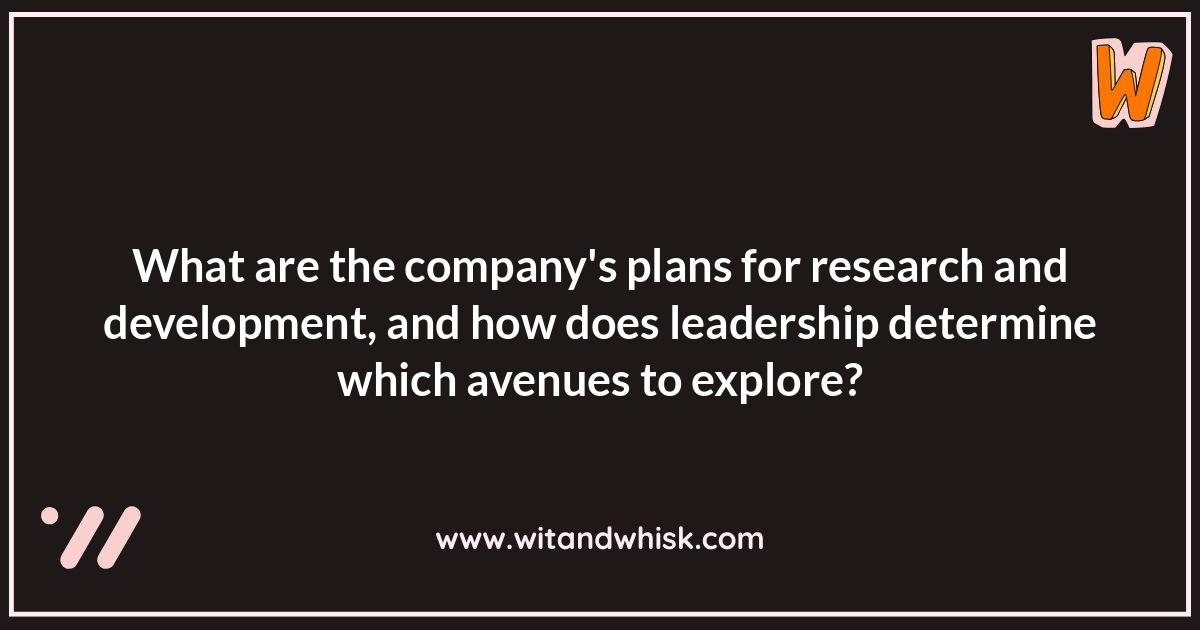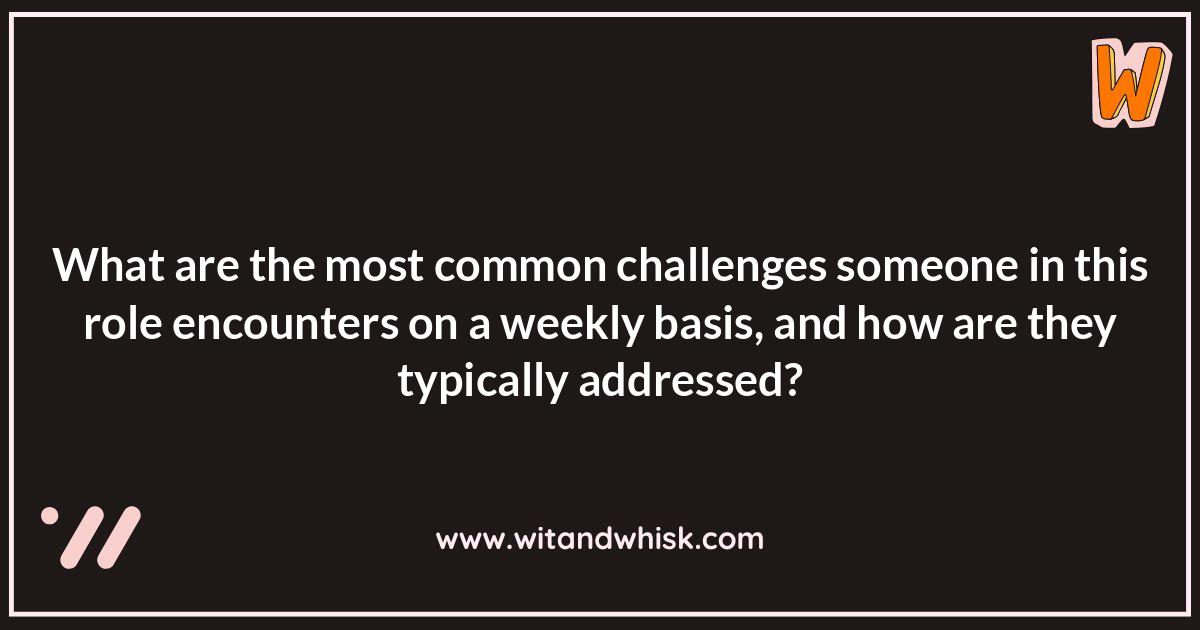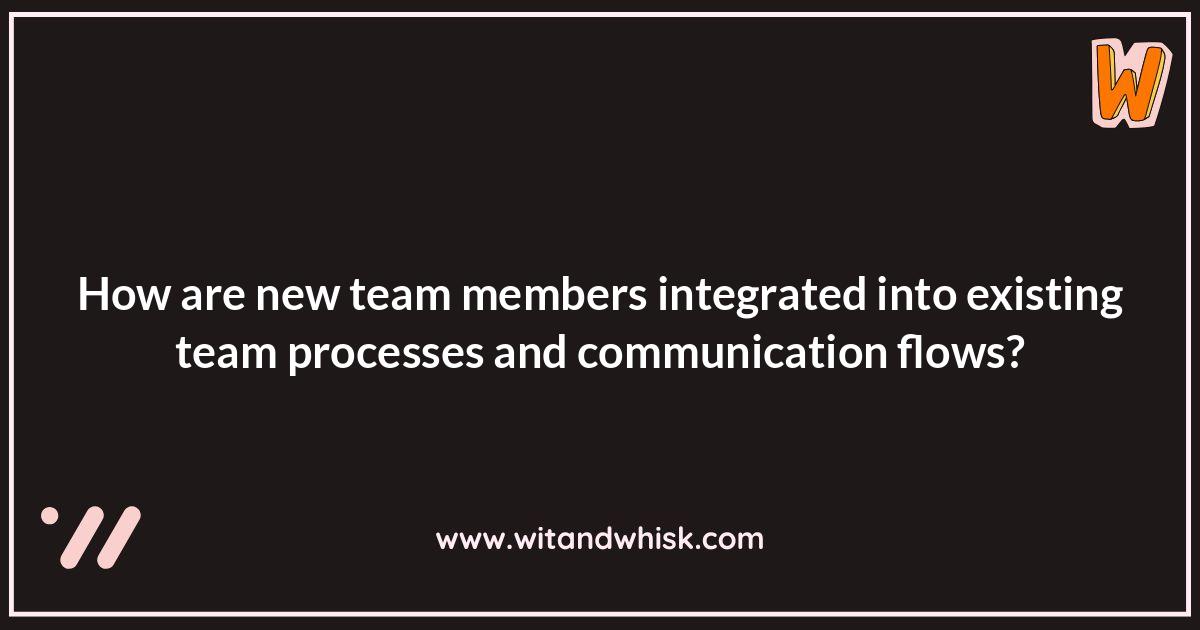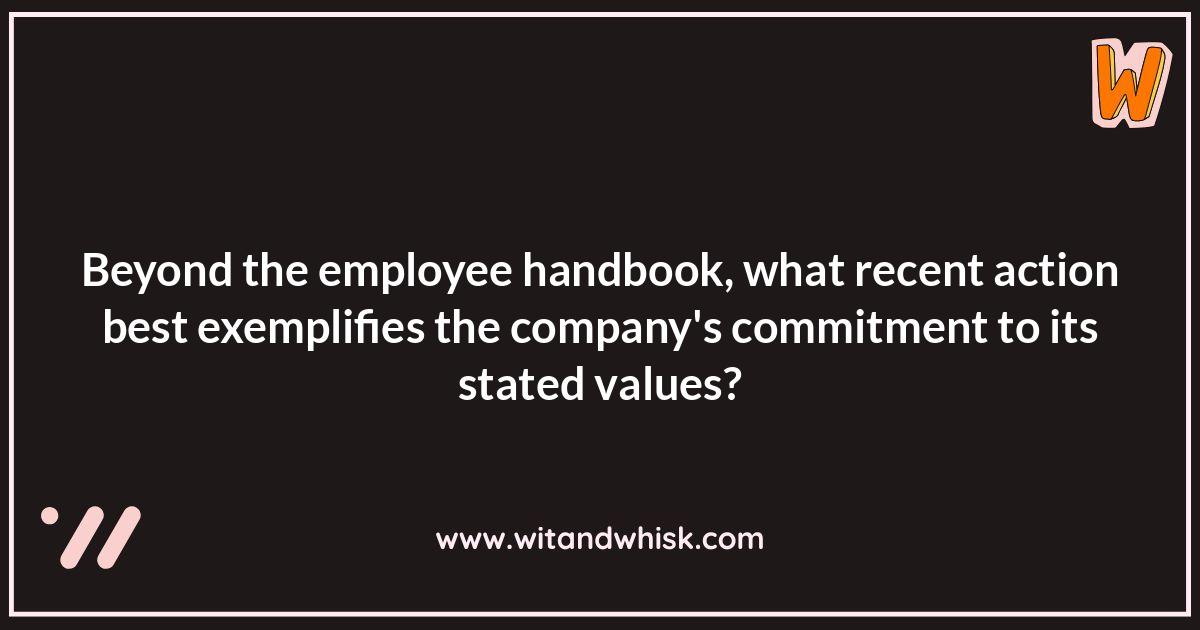150 Best Good Questions to Ask in an Interview That Will Land You the Job
Landing an interview feels like winning half the battle, right? But the war isn’t over! Don’t just sit there passively. The questions you ask are just as important as the answers you give.

Want to truly impress your interviewer and determine if the role is a good fit for you? Asking insightful questions demonstrates engagement and intelligence. Let’s dive into some good questions to ask in an interview as an interviewee.
We’ll equip you with the perfect arsenal of questions that will leave a lasting impression and help you make the right career move.
Best Good Questions to Ask in an Interview That Will Land You the Job
- How does the team collaborate and share knowledge?
- What are the biggest challenges the company/team is currently facing?
- Can you describe the company culture in three words?
- What opportunities are there for professional development and growth within the company?
- What are the key performance indicators (KPIs) for this role, and how is success measured?
- What is the typical career path for someone in this position?
- How does the company encourage innovation and creativity from its employees?
- What are some recent accomplishments the team is particularly proud of?
- What opportunities are there to contribute to projects outside of my immediate role?
- What does a typical day/week look like in this role?
- How does the company support work-life balance for its employees?
- What are the company’s long-term goals, and how does this role contribute to achieving them?
- Can you tell me about the team’s dynamic and how team members support each other?
- What kind of onboarding process can I expect if I am selected for the role?
- What are the opportunities to give and receive feedback within the team and company?
- How does the company approach employee recognition and rewards?
- What is the company’s stance on diversity and inclusion, and how is it implemented?
- How has the company adapted to recent industry changes, and what are the future strategies?
- What are the biggest opportunities you see for the company in the next few years?
- What is your favorite part about working here?
Showcase Your Proactive Nature: Good Questions to Ask in an Interview
An interview is a two-way street! Show you’re truly invested by asking thoughtful questions. Inquire about team dynamics, company culture, or future challenges. Demonstrating curiosity signals proactive engagement and helps you assess if the role aligns with your aspirations. Smart questions leave a lasting positive impression.
- What opportunities are there to contribute to cross-functional projects and initiatives, and how can I get involved?
- How can I contribute to the company’s social impact initiatives?
- What emerging skills should I focus on developing to maximize my future contributions?
- In what areas of my work could I take more initiative or ownership?
- What are some of the challenges I’m likely to face in my first year, and how can I prepare for them?
- What changes do you see on the horizon, and how can I help to prepare for them?
- What can I do to help improve the team’s performance?
- How can I leverage my strengths to contribute to the company’s goals?
- What opportunities are there to improve processes or workflows within the team?
- What steps can I take to ensure that I am meeting and exceeding expectations in this role?
- How can I stay ahead of the curve in this industry?
- Where do you see the team or department heading in the next 1-2 years, and what specific skills or knowledge will be most valuable in navigating that future?
- What are our strategies for staying ahead of the competition and adapting to industry trends?
- What is the company doing to encourage innovation and creativity from its employees?
Unveiling Company Culture: Good Questions to Ask in an Interview
Landing a job is more than just skills; it’s about fit. Smart interviewees ask questions revealing company culture. What’s a typical day like? How does the team collaborate? What opportunities exist for growth? Genuine curiosity unveils values, work styles, and if you’ll truly thrive there.
- Beyond official statements, how is work-life balance truly supported and practiced here?
- What does leadership do to foster a sense of belonging for all employees?
- How are diverse perspectives valued and integrated into decision-making?
- Can you share a story that exemplifies the company’s values in action?
- How does the company support employee creativity and innovation?
- What opportunities are there for employees to connect outside of work-related tasks?
- How are disagreements or conflicts resolved within the team?
- What’s the unwritten “dress code” here?
- How is feedback shared and acted upon within the company?
- How does the company support employees’ professional development?
- What opportunities are there to get involved in initiatives outside of my immediate role?
- What are some quirky or unique aspects of the company culture?
- How are employees recognized and rewarded for their contributions?
- What qualities does leadership value most in their employees?
Demonstrating Long-Term Vision: Good Questions to Ask in an Interview
Want to show a company you’re thinking long-term? Ask questions that reveal their future plans. Inquire about growth strategies, upcoming projects, or how they envision the company evolving in the next few years. This displays ambition and proves you’re invested in their success, not just a paycheck.

- What are the company’s plans for research and development, and how does leadership determine which avenues to explore?
- How does the company adapt its long-term strategies to account for potential disruptions from emerging technologies or changing consumer behaviors?
- What are the biggest “moonshot” goals the company is currently pursuing, and what are the key milestones for achieving them?
- How does the company cultivate a culture of future-oriented thinking and encourage employees to anticipate long-term trends?
- What are the key performance indicators (KPIs) used to measure the success of long-term strategic initiatives, beyond just short-term financial gains?
- How does the company plan to address potential skills gaps in the future workforce, and what training programs are being developed to prepare employees for those changes?
- What is the company’s approach to sustainability and environmental responsibility, and what long-term goals have been set in this area?
- How are emerging market trends and global economic shifts factored into the company’s long-term strategic planning?
- What’s the company’s plan for addressing potential regulatory or policy changes that could impact its operations in the future?
- How does the company balance the need for innovation with the importance of maintaining its core values and ethical standards?
- What strategies are in place to encourage employees to think beyond their immediate tasks and contribute to the company’s long-term vision?
- How does the company ensure that its long-term goals are aligned with the needs and expectations of its customers?
- What are the biggest challenges the company anticipates facing in the next 5-10 years, and how are you preparing to overcome them?
- What role does scenario planning play in the company’s long-term strategic planning process, and what potential scenarios are being considered?
- How does the company plan to foster a diverse and inclusive workforce that reflects the changing demographics of the global population?
Assessing Growth Opportunities: Good Questions to Ask in an Interview
Want to grow with the company? Smart move! During your interview, ask about training programs, mentorship opportunities, and career progression paths. Inquire about how the company supports employee development and encourages learning new skills. Showing you’re invested in long-term growth impresses employers and helps you find the right fit.

- What internal mobility programs are in place to facilitate transitions to roles that better align with evolving skill sets and interests?
- How does the company support employees who wish to pursue cross-functional training or development opportunities outside of their immediate team?
- What are the typical career paths for individuals in this role, and what skills or experiences are most valued when considering candidates for promotion?
- What opportunities are there to take on stretch assignments or participate in special projects that can help me develop new skills and expand my network?
- How does the company foster a culture of continuous learning and development, and what resources are available to support employees in their growth?
- Are there opportunities to participate in leadership development programs, and what is the selection process for these programs?
- How are performance goals aligned with opportunities for advancement within the organization?
- What specific actions can I take to increase my visibility within the organization and showcase my accomplishments?
- Are there any opportunities for stock options or equity in the company, and what are the vesting terms?
- What is the company’s policy on tuition reimbursement for employees pursuing higher education or advanced degrees, and what are the eligibility requirements?
- What new skills or areas of knowledge do you expect me to acquire during the first year, and how will you support my learning?
- What are the expectations for me to take on leadership roles in the future?
- Are there any opportunities to rotate through different departments to gain a broader understanding of the business?
- How can I contribute to innovation in this role?
- What opportunities are there to contribute to cross-functional projects and initiatives, and how can I get involved?
Clarifying Role Expectations: Good Questions to Ask in an Interview
Want to shine in your interview? Don’t just answer questions, ask them! Specifically, clarify your role. Inquire about day-to-day responsibilities, key performance indicators, team dynamics, and opportunities for growth. Understanding expectations upfront sets you up for success and shows you’re genuinely interested in contributing meaningfully.

- What are the most common challenges someone in this role encounters on a weekly basis, and how are they typically addressed?
- What are the opportunities to contribute to projects outside of my immediate responsibilities?
- What are the unwritten rules or social norms that are important to understand when working on this team?
- How is success measured in this position, and what are the key performance indicators (KPIs)?
- How do you define success for someone in this role, beyond the typical metrics?
- What are the top priorities for this role in the next 3-6 months?
- What are the opportunities to use my creativity and unique skills in this role?
- What are the biggest challenges you anticipate I’ll face in this position, and how can I prepare for them?
- How does this role contribute to the company’s overall mission and strategic goals?
- How much autonomy will I have in making decisions and implementing my own ideas?
- Can you describe the training process for new hires, and what resources are available to support my learning?
- What is the typical career trajectory for someone in this role, and what are the opportunities for advancement within the company?
- What’s the team’s approach to innovation and continuous improvement, and how are new ideas encouraged and implemented?
- What are the expectations for cross-departmental collaboration, and what kind of support is provided to facilitate this?
- What are the opportunities for me to expand my responsibilities and take on new challenges in the future?
Understanding Team Dynamics: Good Questions to Ask in an Interview
Want to thrive, not just survive, in your new role? Go beyond basic job questions! Ask about team dynamics: How does the team handle conflict? What are the communication styles? Understanding team culture upfront helps you gauge fit and shows you value collaboration. These questions reveal crucial insights into your…

- How are new team members integrated into existing team processes and communication flows?
- Can you describe a time when the team faced a major disagreement, and how did you work through it?
- What role does leadership play in fostering a positive and inclusive team environment?
- How are team members encouraged to share their ideas and challenge the status quo?
- What is the team’s approach to conflict resolution and ensuring that all voices are heard?
- What are the key personality traits or working styles that tend to thrive on this team?
- How does the team celebrate successes and acknowledge individual contributions?
- What opportunities are there for team members to learn from each other’s expertise and experience?
- How often does the team engage in team-building activities or social events outside of work?
- What is the team’s communication style, and how is information typically shared?
- How does this team adapt to changing priorities and project requirements?
- What mechanisms are in place to ensure that all team members have equal access to resources and opportunities?
- What role does trust play in the team’s dynamics, and how is it fostered and maintained?
- How does the team ensure that all members feel comfortable sharing their opinions and ideas, even if they differ from the majority?
- What strategies does the team employ to avoid groupthink and encourage diverse perspectives?
Gauging Company Values: Good Questions to Ask in an Interview
Want to see if a company’s values are more than just words on a website? Ask questions! Inquire about how they handle ethical dilemmas, reward teamwork, or support employee growth. Their answers will reveal if their stated values truly shape their actions and if you’ll thrive in their culture.

- Beyond the employee handbook, what recent action best exemplifies the company’s commitment to its stated values?
- How does the company encourage open dialogue about ethical concerns, and can you share an instance where this process led to a positive change?
- What steps are taken to ensure that the company’s values are not just aspirational, but are actively lived out by all employees, including leadership?
- How does your company create a culture of inclusion?
- Can you describe the company’s approach to giving back to the community?
- Are there any initiatives where employees can contribute to causes they care about?
- How does the company support employees who want to pursue further education or professional certifications relevant to their field?
- In what ways does the company’s physical workspace reflect its values?
- Can you give me an example of a time when the company prioritized ethical considerations over short-term profits?
- What opportunities are there for employees to contribute to projects outside of their immediate role?
- How would you describe the company’s commitment to social responsibility?
- What are the biggest challenges you see facing the company in the next year, and how are company values factored into plans to overcome those challenges?
- How does the company assess and reward employees for upholding its values?
- What are your thoughts on what the perfect workplace looks like?
- How are you holding leadership accountable for diversity and inclusion?
Inquiring About Performance Metrics: Good Questions to Ask in an Interview
Want to shine in your interview? Ask about performance metrics! Inquire how success is measured in the role. Understanding key performance indicators shows you’re results-oriented and eager to contribute meaningfully. What metrics drive team goals? How is individual performance evaluated? These questions demonstrate your proactive nature and genuine interest.

- Beyond team goals, how will my individual contributions be measured and recognized?
- What’s the process for refining or adjusting key metrics based on the evolving needs of the business?
- How frequently are performance metrics reviewed, and who is involved in that process?
- Can you share an example of a time when the company adapted its metrics to better reflect its strategic goals?
- What are the most common pitfalls to avoid when interpreting performance data, and how do you ensure accuracy?
- To what extent are performance metrics transparent and accessible to all employees, regardless of their role or level?
- What is the process for addressing concerns about the fairness or validity of specific metrics?
- How are qualitative metrics, such as customer satisfaction or employee engagement, incorporated into performance assessments?
- What are the opportunities for me to contribute to the development or refinement of performance metrics?
- How does the company ensure that performance metrics are not creating unintended consequences or incentivizing counterproductive behaviors?
- What’s the balance between quantitative and qualitative data used to evaluate success in this role?
- Beyond individual goals, how are contributions to team-based metrics recognized?
- Are there any metrics I should be tracking independently to monitor my progress and identify areas for improvement?
- How do you ensure that performance metrics are aligned with the company’s values and ethical standards?
- What are the consequences for consistently exceeding or falling short of performance goals, and how are those consequences communicated?





